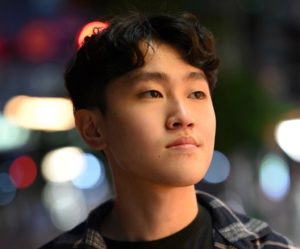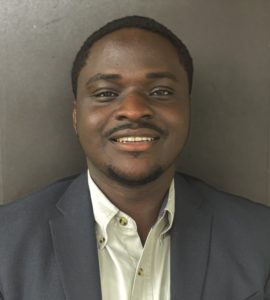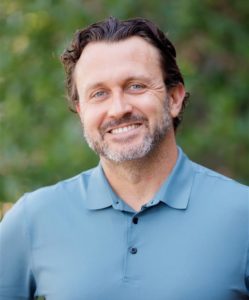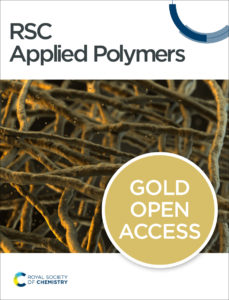Read their recent paper ‘Tuning solvent strength can fractionate PVC into ultra-low molecular weight material with low dispersity’.
Dr Ali Al Alshaikh and Dr Jason Bara have developed a method to fractionate PVC into materials with different molecular weights by adjusting solvent strength, rather than simply dissolving all the polymer at once. Their innovative work supports the goal of creating a circular economy for plastic materials, where waste can be effectively reprocessed into useful products.

Learn more about their research in our interview below.
Tell us more about your research.
In our recently published work, we developed a solvent-based method to fractionate poly(vinyl chloride) (PVC) into products with precise molecular weight distributions, opening new possibilities for chemical recycling. Traditional thermomechanical recycling of PVC is difficult due to complex formulations and risks of degradation. Our approach allows selective dissolution of PVC molecular weight ranges while removing additives, without damaging the polymer.
By adjusting methanol content, we can fine-tune solvent strength and control the recovery of ultra-low molecular weight PVC fractions with low dispersity. These fractions show enhanced solubility and may enable new applications, from chemical modification to 3D printing.
What’s next for this groundbreaking research?
Looking ahead, we’re focused on optimising this process using greener solvents and improving solvent recovery to support scalable recycling. We also plan to explore recovery of additives and their potential for reuse or breakdown into valuable chemicals.
What aspects of this research excite you the most?
What excites us most is the growing recognition that PVC can be recycled, despite being historically overlooked. Our findings add to this momentum by highlighting the unique behaviours and advantages of ultra-low molecular weight PVC, which offer fresh opportunities for materials science.
What are the biggest challenges facing plastics recycling more broadly?
When thinking about the future of plastics recycling, a key challenge is efficiency in collection and sorting. We need to make it easier for users to return specific plastics, perhaps through incentive schemes, and ideally, materials would include a kind of “molecular barcode” to help track composition and improve processing.
What advice would you give aspiring polymer researchers?
Researching polymers can be unpredictable – they don’t always behave the way you expect! But the surprises we’ve encountered have led to valuable discoveries. The most important thing is to stay curious, ask questions, and keep learning.
RSC Applied Polymers is here to advance your knowledge and boost your research.
Read more from our open access journal now.

Ali Alshaikh
Dr. Ali Al Alshaikh is a postdoctoral researcher in the Dept. of Chemical & Biological Engineering at the University of Alabama. His work focuses on polymer chemistry, specifically the upcycling and recycling of plastics, with a particular emphasis on PVC. Ali’s discoveries have shown some of the unique potential of PVC as a versatile material that can be recycled, processed, and modified.

Jaewoo Choi
Jaewoo Choi obtained his Bachelor’s degree from Ulsan National Institute of Science and Technology in 2023 and is currently pursuing a PhD at the University of Alabama. As a second-year graduate student, his research focuses on the post-consumer processing and upcycling of chlorinated plastics.

Feranmi Victor Olowookere
Feranmi Victor Olowookere is a Ph.D. candidate in Chemical Engineering at the University of Alabama, working under the guidance of Dr. Heath Turner. His research focuses on developing computational frameworks (e.g., atomistic and coarse-grained molecular dynamics, and kinetic Monte Carlo methods) for molecular modeling of solvated polymers, such as PVC, and their chemical transformations to advance plastic waste upcycling.

Jason Bara
Dr. Jason Bara is a Professor in the Dept. of Chemical & Biological Engineering at the University of Alabama. He received a B.S. in Chemical Engineering from Virginia Commonwealth University and a Ph.D. in Chemical Engineering from the University of Colorado – Boulder. He has authored more than 170 peer-reviewed research publications on the topics of separations, ionic liquids and green solvents, polymer membranes, and recycling/depolymerization of plastic waste. He has also been awarded 17 U.S. patents for new technologies developed in these areas.
Tuning solvent strength can fractionate PVC into ultra-low molecular weight material with low dispersity
Ali Al Alshaikh, Jaewoo Choi, Feranmi V. Olowookere, Caira McClairen, Owen G. Lubic, Pravin S. Shinde, C. Heath Turner and Jason E. Bara
RSC Appl. Polym., 2025, Advance Article
 |
RSC Applied Polymers is a leading international journal for the application of polymers, including experimental and computational studies on both natural and synthetic systems. In this journal, you can discover cross-disciplinary scientific research that leverages polymeric materials in a range of applications. This includes high impact advances made possible with polymers across materials, biology, energy applications and beyond.
|



